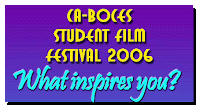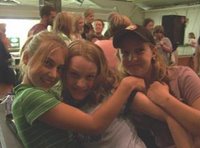
Students who register for this New Summer Learning Experience will be on a newly designed track for learning. This year’s summer learning experience promises to be much more Personalized and Engaging for students!
The use of technology will be evident everywhere as students use laptop computers to take on-line courses and teachers use the Polycom technology and Breeze software to communicate with students, both in the room and at another site. Some students will even be able to take on-line courses from home. No, this isn’t your father’s summer school anymore!
In the past, students have been transported to one school site and taken 1-2 core academic courses. This summer, school districts can choose to have students attend either Elm St. Academy in Cuba or Wellsville High School, depending on their geographical location. Teachers certified in the four core academic high school areas will be teaching from both sites. Students enrolled in on-line courses will be taking classes under the supervision of NYS certified teachers either at one of the sites or on their own. Personalization is the name of the game!
Integration is the key element for students in grades 7 and 8. This year, middle level students will be engaged in an integrated ELA / Social Studies class and an integrated Math / Science class. No longer will students have to wonder how to connect what they learn in one subject area to what they are learning in another. Integrating the content areas will lead students to making direct applications to deepen their understanding of the concepts they are learning. Isn’t the application of knowledge and skills what true learning is really about?
Instructional delivery will be more diversified than ever this summer. Students registered for Earth Science, Biology, and Chemistry will take these courses on-line under the supervision of NYS certified teachers at both sites. US History, PIG, Economics, and Spanish I will be available on-line “any time, any place.” For students taking Math A, Global Studies and ELA, teachers will use distance learning to instruct students using the Polycom technology. It’s all about creating learning environments where students can take the initiative to become fully engaged in their own education."
If you’d like to know more about this 21st century framework for student learning, please call 716-376-8297 or email Lynne Yehl at lynne_yehl@caboces.org. We hope to see your kids this summer!














